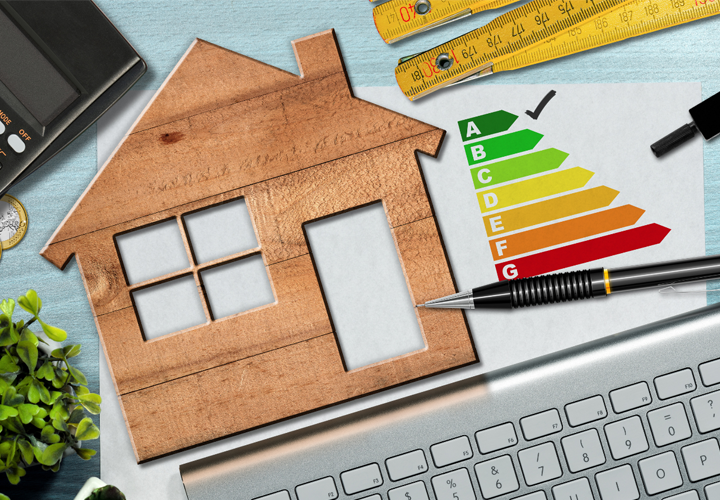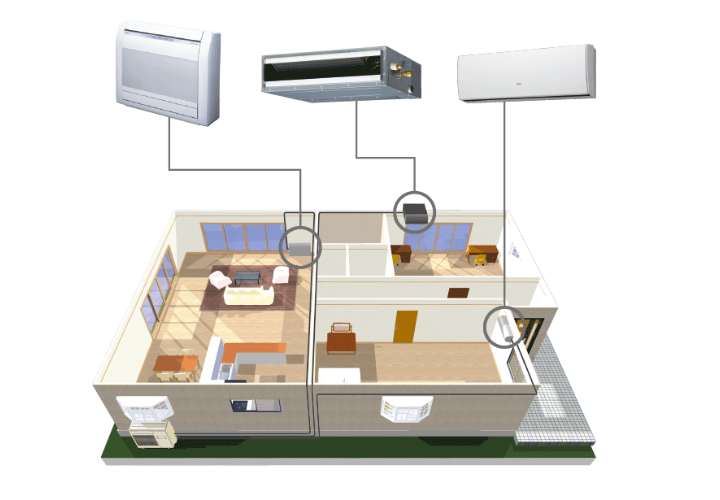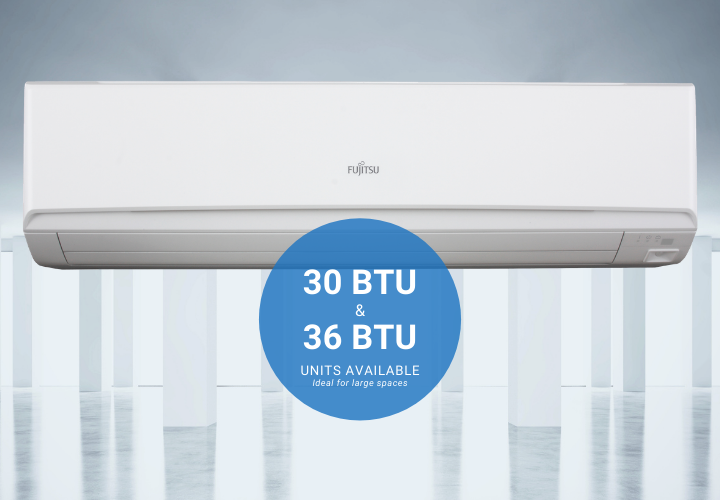
Maltese summers can be challenging not only because of the heat but also due to high levels of humidity. Heat, coupled with humidity can affect our energy levels and productivity, and negatively impact our quality of life.
It is no wonder it has now become near impossible to tolerate summer in Malta without a quality and effective air-conditioning system.
There are several factors to consider when choosing an air-conditioning unit. Browsing a catalogue can feel overwhelming with all the technical information and specifications to navigate through, so we have created a simple guide which we hope can help you choose the right air-conditioning unit for your space.
1) Sufficient capacity
When it comes to the actual air-conditioning unit, the main factor is its capacity, measured in British thermal units (BTU). A knowledgeable salesperson can help you calculate the best BTU rating required for your space.
First measure the size of the room, but you’ll also need to account for the location (shady or sunny), how many people usually occupy the room, and whether its purpose involves heat (like a kitchen).
Air-conditioning units with lower BTU ratings are cheaper, but when a heatwave hits you, you may regret it.
Also check whether the air-conditioning unit has undergone tests at higher temperatures. The warmest temperature ever recorded in Malta was 43.8°C in August 1999 (last year was a sweltering 38°C) and air-conditioning units intended for milder climates may not give good results.
2) Efficiency
The efficiency of the air-conditioning unit will be your next question, because an inefficient air-conditioning unit can really drive up your electricity bill.
The ‘traditional’ air-conditioning unit has only two speeds for the compressor, on and off, with no variability, but the new DC inverter air-conditioning units adjust the speed of the compressor according to the temperature of the room, making them more efficient.
To compare efficiencies, ask for the SEER value of each air-conditioning unit that you are considering – that’s the Seasonal Energy Efficiency Ratio, a measure of how efficient an air-conditioning unit is over an entire cooling season, not just when it’s hottest. A SEER value of 5.5 falls into the “A” energy efficiency class, while an air-conditioning unit must have a SEER of 8.5 to qualify for the highest efficiency class of “A+++”.
Remember that your air-conditioning unit can heat your home in the winter too, so also check the unit’s SCOP rating – this Seasonal Coefficient Of Performance is like the SEER but for the efficiency in heating over the range of a heating season. A SCOP of 3.5 lies in the range of the “A” energy efficiency class, while 5.1 qualifies for “A+++”.
An air-conditioning unit with a good SCOP rating can be up to 8 times more cost effective than using gas or electric heaters, so this is an important factor to consider.
3) Cleaner air
We tend to think of air-conditioning units with respect to air temperature, but a good filtration system will also improve air quality in the home.
This is a vital feature for hay fever sufferers, and an important consideration for families with young children, especially those living in areas of high pollution. The filter in an air-conditioning unit will push the air through very narrow openings, which limits the amount of dust, pollen, pet hair and other impurities that can pass through. The most reputable air-conditioning brands also have an additional ionizer, which uses an electric charge to attract (and therefore remove) airborne particles, resulting in even cleaner air.
4) Condenser Protection
Check the protection afforded to the condenser coils of the outdoor unit, as these are exposed to the air and rain, and vulnerable to corrosion, especially in seaside locations due to the salt in sea spray. Some units have blue fin technology which helps protect the coils thanks to an anti-corrosion coating.
5) Noise Control
Air-conditioning units use fans for both the outdoor compressor (to cool down the condenser), and the indoor unit (to circulate cooled air through the room). In both cases, noise can be an issue, with indoor noise distracting the room’s occupants, and outdoor noise annoying the neighbours or other building occupants. Look for units that are quiet or have a quiet mode that you can switch on when needed.
6) Pipe Length
Another factor to consider is that the location of your indoor unit may be limited because it needs to connect to the outdoor unit via a narrow copper pipe – this pipe will have a length limit and you must position your units within the limit. Some brands will be able to handle longer connecting pipes, giving you more flexibility when it comes to positioning the indoor and outdoor units.
7) Outdoor Unit Size
Besides the size and appearance of the indoor units, it is also a good idea to check the size of the outdoor unit. The size affects the aesthetics of the place where you mount it, but can also affect how you’re able to use the space around it. If you will be mounting your outdoor unit in a shaft, larger units can affect the airflow to windows beside and below it, which can be an annoyance when you want the windows open.
8) A reputable brand
Naturally it is important to choose a reputable brand with a strong track record in air-conditioning. Remember that besides good product performance and efficiency, you will also want good customer service, especially since an air-conditioner requires periodic maintenance.
Making your choice
If you’re seeking to make your home a haven and provide cleaner air for your family, we’re happy to help you choose the best air-conditioning unit for your requirements. We stock Fujitsu air-conditioning units, a brand with a 10-year track record of winning international awards for design, customer satisfaction, and product performance and efficiency.
Call us on 21420534, follow us on Facebook or email sales@able.com.mt for more information, a quote, or to set up an appointment.






